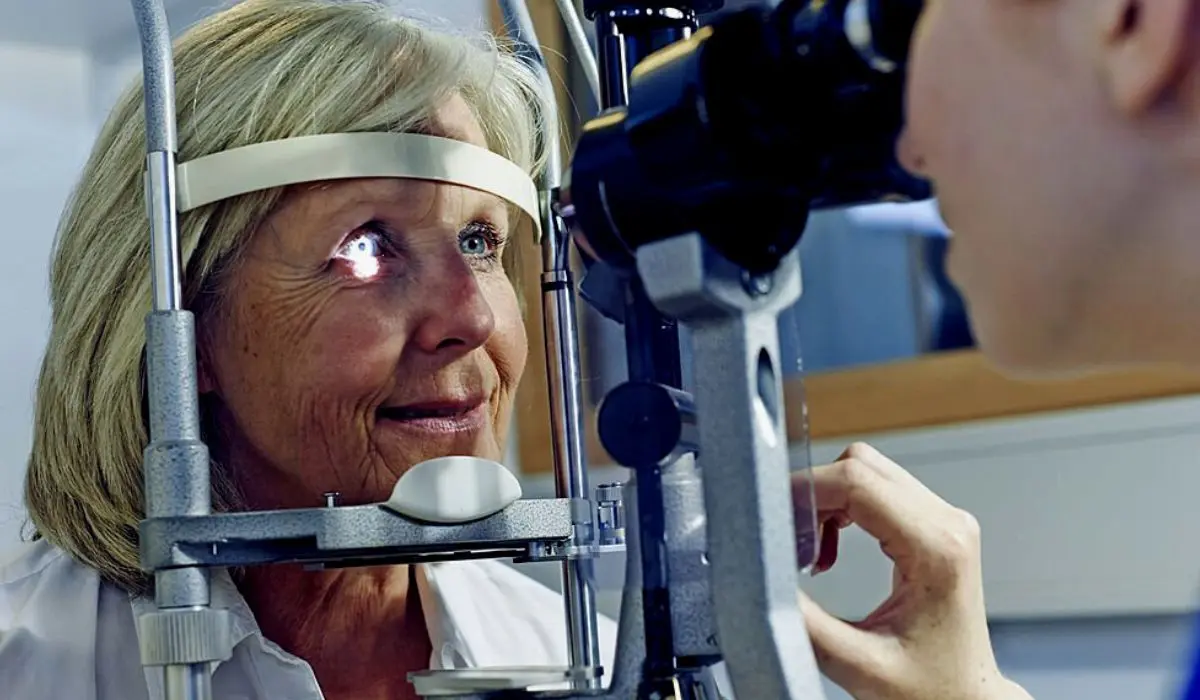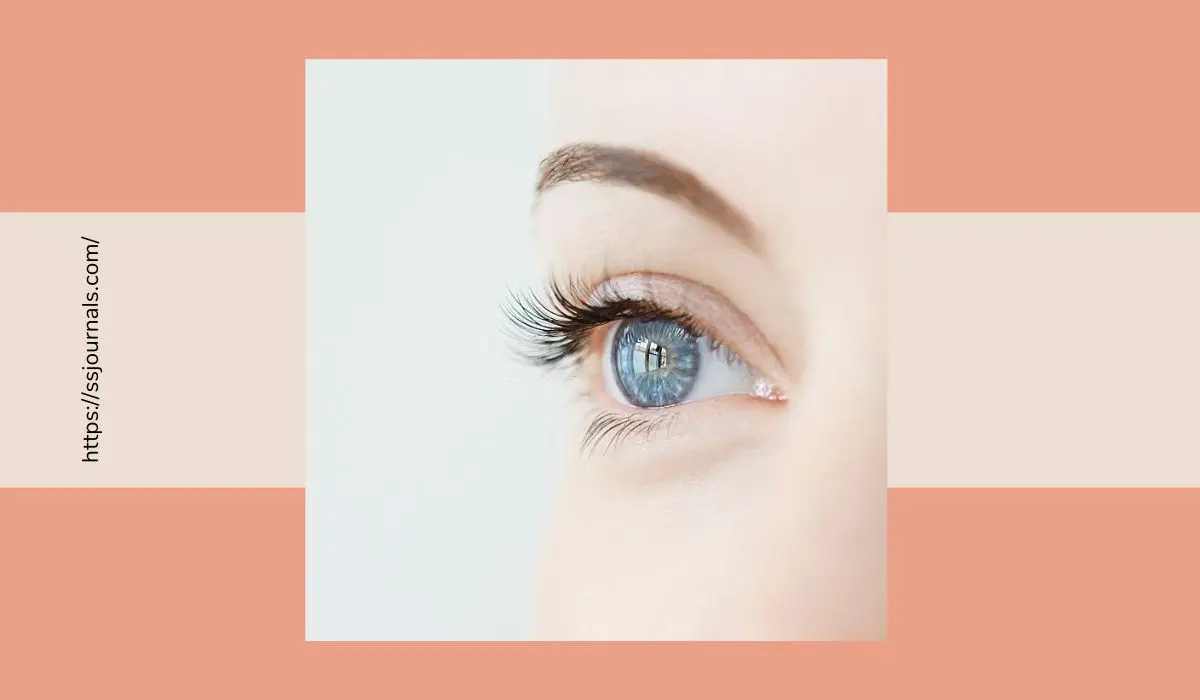Eye floaters are a common thing that can annoy and worry many individuals. These little specks or strings that seem to drift in our sight may look harmless, but they can be annoying. So, what are they?
Floaters are actually small clumps of gel-like substances that form in the vitreous, the jelly-like stuff that fills the back part of our eyeballs.
As we age, the vitreous can become more liquid and shrink. This can cause floaters.
Eye floaters are usually harmless and just an annoyance. But sometimes, they can indicate an issue with the eye. If you notice more floaters, flashes of light, or loss of peripheral vision, you should see a doctor.
So, what can you do about these irritating floaters? There is no sure way to get rid of them, but certain lifestyle changes can help.
Eating a healthy diet with antioxidants and drinking lots of water can help overall eye health and reduce floaters.
Understanding Eye Floaters
To understand eye floaters better and find solutions, delve into the section “Understanding Eye Floaters” with sub-sections like the definition of eye floaters, how common they are, and how they occur.

👉Definition Of Eye Floaters
Eye floaters – those pesky, uninvited guests in your vision. Tiny spots or specks that float across your field of vision – clumps of gel or cells inside the vitreous. They cast shadows on the retina, making them seem like moving objects.
Shapes vary – dots, lines, cobwebs – but usually they’re harmless and don’t require treatment.
However, an increase in their number or sudden appearance of new ones could indicate an underlying eye condition. So, best to consult an eye specialist if you notice such changes.
ResearchGate found that intense activities, such as reading or staring at screens, make people more likely to develop eye floaters.
Taking regular breaks and doing relaxation exercises for the eyes can reduce the risk.
Eye floaters are a fact of life. They may be bothersome, but remember, they’re just twirling away in the vast expanse of your eye’s vitreous humor.
👉 How Common Are Eye Floaters?
Eye floaters are common. Tiny specks, cobwebs, and squiggly lines drifting across our vision may seem insignificant. But they’re more prevalent than you think.
As we age, the vitreous humor in our eyes changes consistency. This forms small clumps or strands that cast shadows on the retina.
Giving us the perception of floaters. They can be bothersome but rarely signal a serious condition.
👉 How Do Eye Floaters Occur?
Eye floaters form when tiny clumps of gel-like substance appear in the vitreous, jelly-like fluid inside the eye.
These clumps cast shadows on the retina, causing floaters. These are most visible while looking at a bright background like a sky or white wall.
Age causes the vitreous to shrink and become more liquid, leading to the detachment of collagen fibers.
These then clump together, causing floaters. Other factors such as injury or inflammation in the eye can also cause them.
Myopia (nearsightedness) or diabetic retinopathy can lead to more floaters.
Though usually harmless, sudden increases in their number or size could imply a severe underlying issue. It’s important to see an ophthalmologist for further examination.
Symptoms Of Eye Floaters
To understand the symptoms of eye floaters, dive into the appearance, impact on vision, and when to be concerned.
Description of the appearance of eye floaters illustrates their varying shapes and sizes. Discover how they affect vision and when they should raise concerns.
👉 Description Of The Appearance Of Eye Floaters
Eye floaters, aka vitreous floaters, are like tiny specks or cobweb-like shapes that appear to drift across your vision.
They cast shadows on your retina, making small dark spots or lines visible. Floaters can be dots, circles, strands, or clouds.
These particles are actually bits of collagen fibers hanging in the vitreous humor – the gel-like stuff that fills the space between the lens and retina of your eye.
As you age, the vitreous humor shrinks and gets more liquid, causing the fibers to clump and make floaters.
👉 How Do Eye Floaters Affect Vision?
Eye floaters are those tiny specks that drift in your vision – can affect the way you see. They’re dark spots, strings, or cobwebs that disrupt your ability to focus on objects.
The movement of floaters can be distracting and annoying.
They can also create the illusion of moving objects or flashing lights in your peripheral vision. This is known as photopsia and usually is harmless.
But if your floaters are accompanied by other vision problems, or if they persist, seek medical help.
To reduce the likelihood of eye floaters, protect your eyes and get regular eye check-ups.
👉 When Do Eye Floaters Become A Concern?
Eye floaters can be concerning if they start to affect vision or cause discomfort.
When looking at bright backgrounds or under direct light, these specks or threads in your vision may become more obvious.
Usually, they are harmless and common when we age.
But, if you suddenly experience a huge increase in floaters or flashes of light, it could be a sign of a serious problem like retinal detachment.
In such cases, seek medical help straight away to avoid permanent vision loss.
Related:- What Is Normal Eye Pressure After Cataract Surgery? Unlocking Clarity
Causes Of Eye Floaters
To understand the causes of eye floaters, delve into the various factors behind this phenomenon.
Age-related changes in the vitreous humor, eye injuries or trauma, certain eye diseases and conditions, and medical conditions associated with eye floaters shape this section.

Explore the root causes that contribute to the development of eye floaters.
👉 Age-Related Changes In The Vitreous Humor
Eye floaters can be caused by age-related changes to the vitreous humor.
This gel-like substance fills the eye and lets light reach the retina.
But, as you age, the vitreous humor changes, which can lead to floaters. Check out the table below for more info!
| Change | Impact |
| Thickening | Floaters due to density. |
| Degeneration | Debris appears as floaters. |
| Collagen shrinkage | Clumped collagen fibers. |
| Liquification | Liquefied parts cause floaters. |
Not everyone will experience eye floaters from these age-related changes. Other factors like genetics or eye health could play a role. If you have more floaters or other visual issues, get an eye exam.
Floaters can be bothersome, so there are treatments. Speak with an eye care specialist if you’re concerned. Don’t let fear of losing vision hold you back—take care of your eyes now!
👉 Eye Injuries Or Trauma
Eye injuries or trauma can be caused by many factors, such as a direct impact from a foreign object, sharp objects like glass or metal, chemical exposure, or intense light or radiation.
These can lead to serious issues, like corneal abrasion, lens dislocation, penetrating injury, internal bleeding, and more. If left untreated, it could result in permanent vision loss.
To help protect the eyes, it’s important to take certain precautions:
- Wear protective eyewear in dangerous places or when doing activities with a high risk of eye injury.
- Handle sharp objects carefully and use safety measures.
- Avoid intense exposure to dangerous chemicals and make sure there’s good ventilation in work areas.
- Wear sunglasses or goggles to shield your eyes from intense light or radiation.
By following these steps, you can greatly reduce the risk of eye injuries or trauma.
👉 Certain Eye Diseases And Conditions
Cataracts: Age-related clouding of the lens inside the eye. This can lead to floaters and changes in vision.
Diabetic retinopathy: Diabetes may cause damage to blood vessels in the retina. This can cause floaters and other visual issues.
Retinal detachment: The retina detaching from the back of the eye can lead to floaters. It often has other symptoms like flashes of light or a curtain-like shadow.
Plus, certain medications or treatments can cause temporary or permanent floaters. For instance, vitrectomy surgery increases the chance of floaters forming.
👉 Medical Conditions And Risk Factors Associated With Eye Floaters
Medical conditions and risk factors can lead to eye floaters. Age-related changes in the vitreous humor, diabetic retinopathy, posterior uveitis, and retinal detachment can be causes.
Risk factors include a history of eye trauma or surgery, nearsightedness, a family history of floaters, being overweight or obese, smoking tobacco, and prolonged sunlight exposure.
Additionally, diabetes and hypertension can increase the likelihood of floaters. Heavy lifting or exertion can also cause floaters.
Most eye floaters are harmless, however, some may need medical attention. New floaters, flashes of light, or changes in vision should be evaluated by an eye care professional.
Prompt diagnosis and treatment can help prevent complications and ensure optimal visual health.
Treatment Options For Eye Floaters
Eye floaters are a common condition that can cause spots or thread-like shapes in vision.
Treatment options are available to help with the associated symptoms and improve visual quality.
Such treatments include:
👉 Laser therapy: A focused laser is used to break up the floater into smaller pieces, making it less visible or even removing it.
👉 Vitrectomy surgery: In severe cases, this option involves taking out the vitreous gel and replacing it with saline. However, it carries risks and should be considered carefully.
👉 Medication: Certain medicines may help reduce the appearance or intensity of eye floaters. They cannot cure but can provide temporary relief.
Related:- How To Take Care Of Pink Eye? Risk Factors While Exposing!
Conclusion
Eye floaters are an annoying, yet normal sight. They appear as specks, cobwebs, or string-like shapes in your vision, usually against a bright background.
They’re caused by aging vitreous gel that clumps together in your eye, casting shadows on the retina. In rare cases, dehydration or eye surgery can also lead to their formation.

